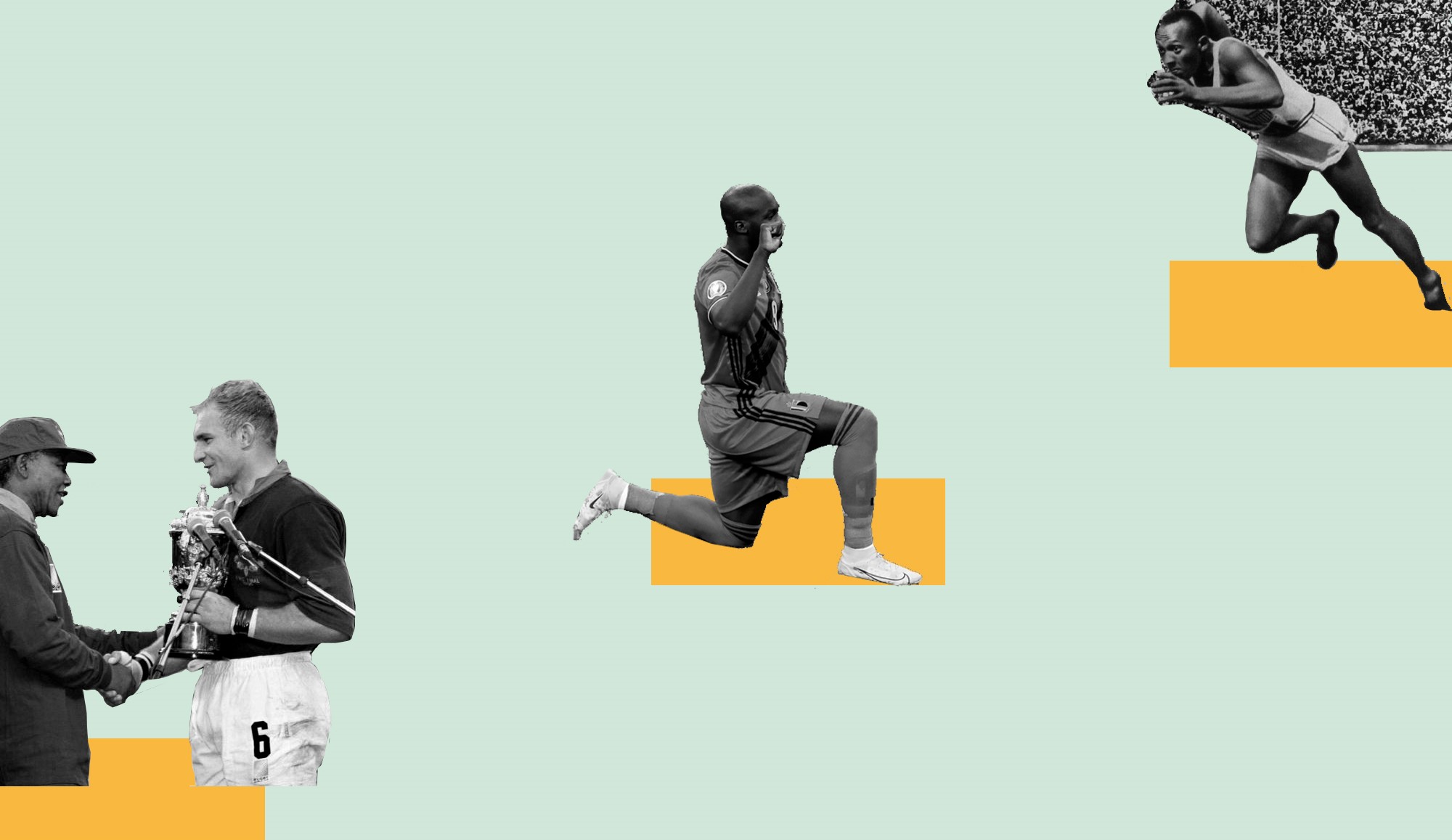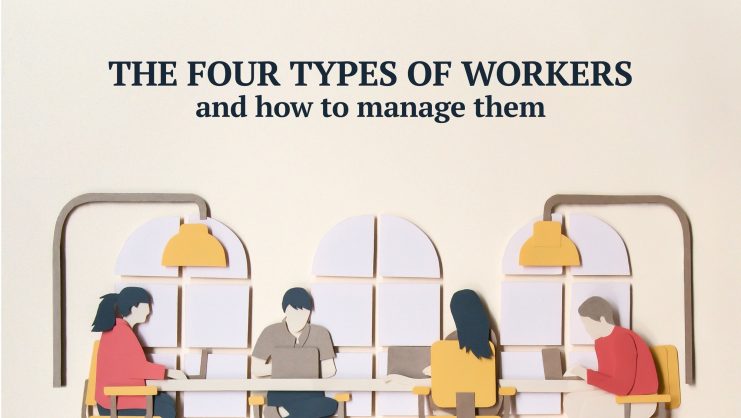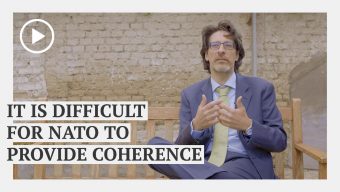The Olympics brings together athletes, politicians, and spectators from around the world. The event illustrates the connection between sports and politics perhaps more than any other sporting competition. But how exactly do the Olympics and other sporting events impact the political realm? Social science research has explored some of the important and often surprising ways that sports can influence the political world.
Sports and nationalism
In the world of sports and politics, the link between international sports and nationalism probably tops the list as the most researched topic in recent years. Studies looking at the Olympics, the World Cup, the UEFA European Championship, the Rugby World Cup, and cricket matches show that these events can make people identify more strongly with their nations. Even Eurovision can make people more nationalistic, and although these feelings often manifest as national pride, they can also take the form of hostilities toward other nations.
Building on this research, other studies link nationalism from sports to some important social and political outcomes. For example, recent research found that important victories in the African Cup of Nations decreased levels of civil conflict and caused citizens to be more likely to trust their fellow compatriots, including those of different ethnicities. Another recent study about African football found evidence that winning (compared to losing) strengthens bonds between co-nationals and worsens attitudes toward refugees.
My own research has analyzed how World Cup nationalism impacts international trade and military conflict between countries. In a working paper with Prof. George Yin of Swarthmore College, we find evidence that countries become more likely to experience drops in bilateral trade if they are randomized to compete at the World Cup. In fact, it appears that the result is explained by the losing countries importing less from the countries that defeated them. Along these same lines, my previous research shows that countries appear to become more likely to start military conflicts in international relations after they qualify and go to the World Cup. These results contradict the widespread notion that international sports improve relations between countries, at least for the World Cup.
The double-edged sword of sports and ethnic tolerance
On a smaller scale, sport is often praised for bringing together athletes and fans from all walks of life, but does it improve tolerance? Research does show the ability of immigrant superstar athletes to reduce ethnic and religious prejudices. The study focused on Liverpool’s record-breaking Egyptian forward Mohamed Salah, and the authors found that hate crimes and anti-Muslim tweets dropped substantially in Liverpool after he joined the club in 2017. This suggests that when fans root for athletes that come from different backgrounds than themselves, it can reduce racism and bigotry. The finding resonates with the popular theory that the black baseball players Jackie Robinson and Hank Aaron may have had an important impact on the civil rights movement in the United States by influencing the attitudes of white people who rooted for them.
However, this inspirational finding may have a darker side. When Marcus Rashford, Jadon Sancho, and Bukayo Saka, three black players for England, missed penalties in the decisive shootout of the Euro 2020 final, it led to a racist backlash in the country. In some ways, the reaction mirrored the racism that English manager Sven-Göran Eriksson faced when England failed to win the 2006 World Cup, and it serves as a timely reminder that there is still a long way to go in the fight for equality and tolerance in sport. The bottom line is that high-profile players and coaches appear capable of either increasing or reducing prejudices, depending on their levels of success.
From stadiums to the ballot box
Another political arena that sports is capable of influencing is voting. Two influential studies in the United States demonstrated this phenomenon. The first looked at counties with popular American football teams at the collegiate level. It found that when the team won about 10 days before an election, it tended to increase the vote share of the incumbent politician by about 3 percentage points. In other words, an incumbent who might garner 47% of the vote if the college football team lost would be expected to get about 50% if they won. The researchers also looked at college basketball games and found that surprising upsets led to an upswing in the leader’s approval rating, consistent with their findings about college football. Another group of researchers found that when Ohio State defeated Oregon in the 2015 National Championship, it led to a boost in Barack Obama’s approval rating among Ohio State students and a drop in his approval rating among Oregon students.
The idea is that when a person’s sports team performs well, they think that times are good, so they are more likely to support the politician in power. They entangle their positive feelings about sports with their feelings about the state of society in general.
Can sports influence voting in other ways? I have previously argued that the British government may have made a tactical blunder by scheduling the Brexit vote during the UEFA European Football Championship. Then-Prime Minister David Cameron wanted the British people to vote for internationalism and choose to remain in the EU. However, as previously discussed, international sports can make people identify more strongly with their nations and view other nations as competitors. In my view, the Leave campaign were the benefactors of a very lucky break when the referendum was scheduled during a major international sporting event, with nationalistic feeling heightened.
Would Britain still be in the EU if the vote had been scheduled two months earlier or two months later? It is hard to say. To my knowledge, no study has tried to determine exactly how much the Euro affected the Brexit vote. However, if the number is similar to that found for popular American football teams in the United States–about 3%–then the Euros may well have made the difference.
Sporting bans to change states’ behavior
Lastly, I want to mention some new research that I am working on with Thandiwe Keet and Aleksandra Smajevic. We examine whether banning certain countries from international sports can compel them to change their behavior. In some cases, the answer appears to be yes. When countries are banned for reasons related to the sporting realm, such as racial or gender discrimination in sports or government interference in National Olympic Committees, sports sanctions appear to be fairly effective. However, when the goals fall outside the sporting realm, like regime change or ending a war, sports sanctions seem to be of limited utility.
Our research also shows that even though there have only been about ten large-scale cases of sports sanctions in the past, they have had a wide range of motivations. Their objectives have included promoting civil rights, combatting state-sponsored doping, stopping undue government interference in the Olympic movement, curbing fan violence, and isolating governments. While some findings about sports and politics seem clear and straightforward, when countries get banned does not appear to follow a clear pattern.
Many people think of sports as an escape from politics, despite studies showing the two are inseparably intertwined. However, many questions still remain about when, where, and how competition on the playing field influences the political realm. Academic research will continue to provide fascinating insights into these questions in the coming decade as international audiences continue to grow. Stay tuned.
© IE Insights.








